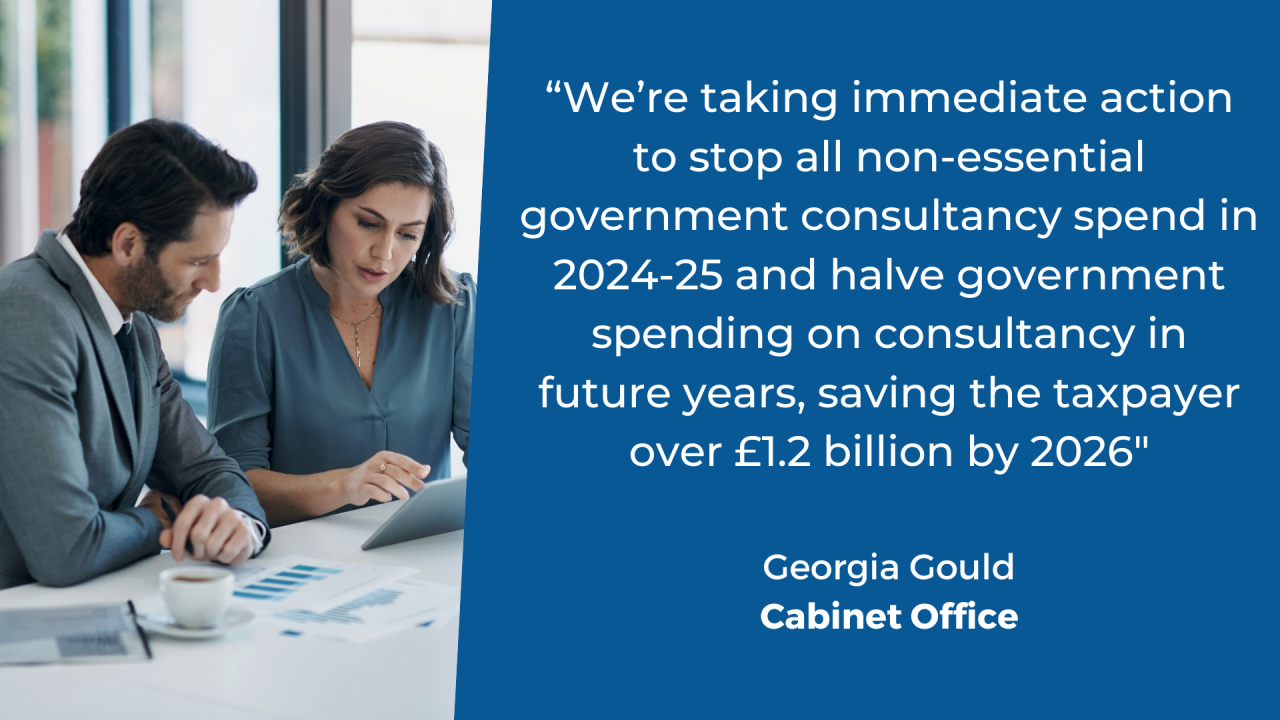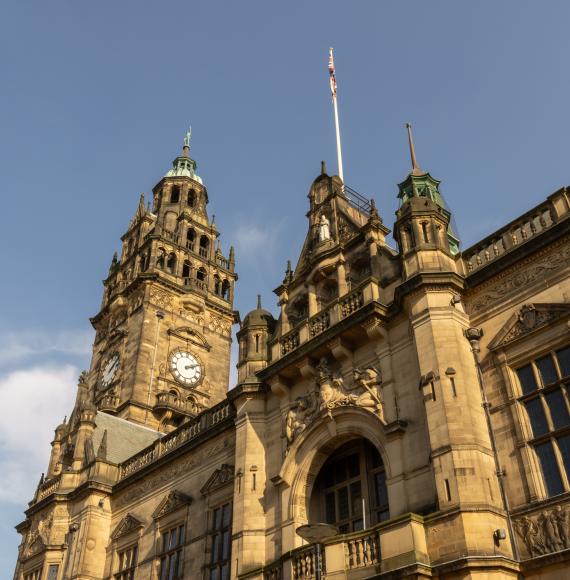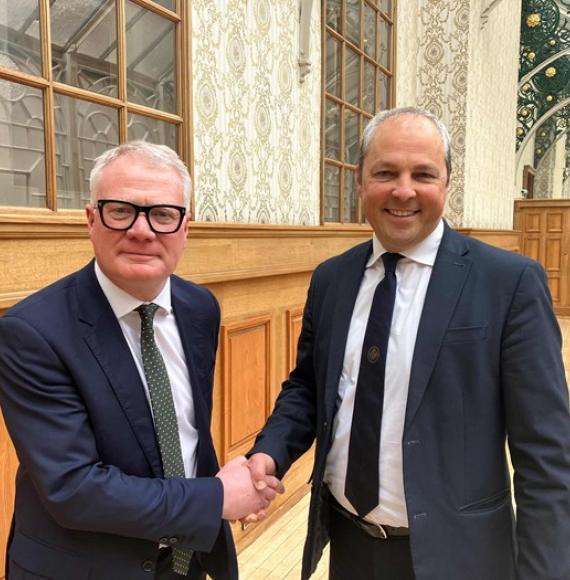The government is introducing new controls over the use of consultancies, in order to stop unnecessary spending.
As was set out in the Autumn Statement, this measure could save £1.2 billion by 2026, having already seen departments expected to save the £500 million that had been committed to this financial year. These controls will provide greater oversight on government use of consultancies, as consultancy spend over £600,000 (or lasting longer than nine months) will require ministerial signoff. Alongside this, spend over £100,000 (or lasting longer than three months) will need to be signed off by the relevant permanent secretary.
To support the new measure, the government is inviting companies to bid for a new framework agreement to streamline the way that consultants are used in the future. This will reduce the time spent by departments on the procurement process, as suppliers will be on a centralised list having already been through the tendering process.
This will also see the framework’s value reduced to £1.7 billion over two years, from £5.7 billion over four years, as part of the drive to reduce consultancy spending.

Parliamentary Secretary at the Cabinet Office, Georgia Gould, said:
“We’re taking immediate action to stop all non-essential government consultancy spend in 2024-25 and halve government spending on consultancy in future years, saving the taxpayer over £1.2 billion by 2026.
“It comes alongside our work to develop a strategic plan to make the Civil Service more efficient and effective, with bold measures to improve skills and harness digital technology.”
The new agreement will be managed by the Crown Commercial Service, with the CCS playing a coordinating role in the consolidation of government consultancy spending. This framework will also provide small and medium-sized enterprises with the opportunity to win public sector contracts, whether as a consortium or subcontractor.
Sam Ulyatt, Crown Commercial Service CEO, also commented:
“Consultancy services are sometimes needed to support Government to deliver for citizens, but taxpayers must get value for money.
“This agreement will help to ensure a behavioural and cultural change of how consultancy is procured throughout the UK public sector.”
Image credit: iStock



















